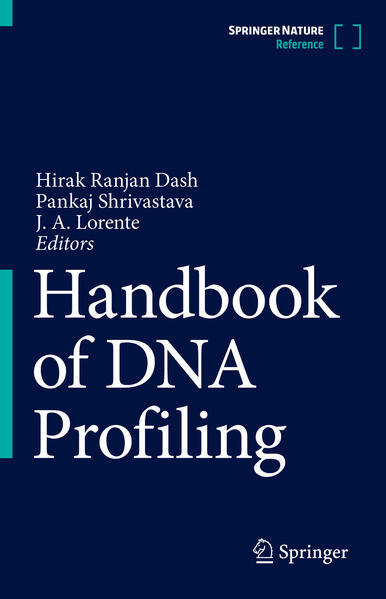
Zustellung: Sa, 24.05. - Mi, 28.05.
Versand in 1-2 Wochen
VersandkostenfreiBestellen & in Filiale abholen:
This reference book comprehensively reviews the significance of DNA technology in forensic science. After presenting the theory, basic principles, tools and techniques that are used in forensic DNA typing, it summarizes various techniques, including autosomal STR, Y-STR, X-STR, mitochondrial DNA and NGS, used in solving both criminal as and civil cases, such as paternity disputes, identification of mutilated remains, and culprit identification in sexual assault and murder cases. It also provides an overview of DNA-based genetic diagnostics for various diseases, and discusses the role of DNA typing in drug reactions, as well as the application of non-human DNA profiling of animals and plants in forensic science investigations. Lastly, the book examines the role of internal quality control in maintaining the high quality of DNA profiling.
Inhaltsverzeichnis
Module 1. _Principles of forensic DNA typing. - Module 2. _Usefulness of various techniques of DNA typing in solving cases. - Module 3. _Varied nature of cases solved by DNA typing. - Module 4. _DNA analysis in disease diagnosis. - Module 5. _Modifications in routine methodologies to solve challenging cases. - Module 6. _Non-human Case studies. - Module 7. _Quality control and Challenges in forensic DNA analysis.
Produktdetails
Erscheinungsdatum
15. April 2022
Sprache
englisch
Auflage
1st edition 2022
Seitenanzahl
1256
Herausgegeben von
Hirak Ranjan Dash, Pankaj Shrivastava, J. A. Lorente
Verlag/Hersteller
Produktart
gebunden
Gewicht
2423 g
Größe (L/B/H)
241/160/74 mm
ISBN
9789811643170
Entdecken Sie mehr
Bewertungen
0 Bewertungen
Es wurden noch keine Bewertungen abgegeben. Schreiben Sie die erste Bewertung zu "Handbook of DNA Profiling" und helfen Sie damit anderen bei der Kaufentscheidung.










